Helping Small Businesses and Nonprofits Navigate the Pandemic in Greensboro
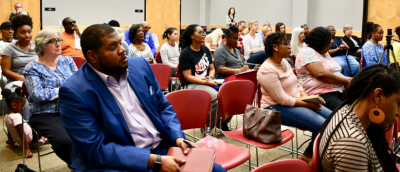
Pictured: Attendees of the 2019 Greensboro Public Library Nonprofit Resource Fair
Authored by Brigitte Blanton (Director) and Morgan Ritchie-Baum (Business & Nonprofit Librarian), Greensboro Public Library
Look to identify opportunities in your community where the library can utilize well-established skills and processes to help an organization or government body avoid the creation of an unnecessary task force, meeting or committee. This will create the opportunity to not only showcase what we do as librarians on a daily basis but also embed the role and value of library service in the minds of organizations and individuals who are often agents of influence ... within their own organizations.
An unexpected and highly contagious virus creates a worldwide pandemic and libraries across North America shut their doors to the public. What could be worse for our service model and how can we manage this crisis? How do we react in a positive way to change a crisis into an opportunity?
For the folks at Greensboro Public Library, we were fortunate to have already established a reputation as a reliable resource in the community, but we also had to gain the respect of our colleagues in city government. In a conversation with my boss from the City Manager’s Office, I learned that our governing officials had a concern about the ability of small businesses to thrive during the pandemic and how could we, as a city, make sure those businesses would be supported.
The initial suggestion was to form a committee that would somehow assist these businesses. However, instead of forming a committee, I suggested leveraging the resources and services of the library's small business/nonprofit librarian. To be honest, at that moment, I was not sure exactly what we could do, but I knew that the answer was not another committee. This was an opportunity for the library to demonstrate that we are an essential service and that we have a positive influence on economic development.

Pictured: 2019 Greensboro Public Library Nonprofit Resource Fair Attendee and Business & Nonprofit Librarian Morgan Ritchie-Baum
I quickly solicited the assistance and expertise of Morgan Ritchie-Baum, our small business/nonprofit librarian. She got to work, and by the next day she had compiled a draft of The COVID-19 Small Business & Nonprofit Resource Guide. Updated daily, the Guide has been through many changes since launching, with countless additions. Now at more than 100 pages, the Guide offers local, state and federal resources to help small businesses and nonprofits navigate the pandemic.
The COVID-19 Small Business & Nonprofit Resource Guide was initially distributed by email to a modest number of organizations in the business community. From there, it spread throughout the community, becoming an essential resource to more than 130 small businesses and nonprofits. Much more than just a list of COVID-19 grant opportunities, the Guide includes resources to help locals secure federal relief funding and find helpful information on how to pivot business practices in the ever-changing circumstances brought on by the pandemic. The Guide became so vital to Greensboro’s pandemic response that city managers added it to their weekly briefing for City Council.
Because we had the expertise readily at hand, we managed to go from just another participant in a committee meeting to the trusted institution taking the lead and making a meaningful impact on the local economy. We gained dozens of new connections not only with local businesses and nonprofits, but also with the organizations that support those groups.

Pictured: Attendees at the 2019 Greensboro Public Library Nonprofit Resource Fair
As the Guide began to spread among community partners, organizations receiving funding from various federal, state and local sources – with the goal of redistributing to area small business and nonprofits – began to contact me directly to be included in our daily updates. In many instances, these requests would lead to a new partnership opportunity between the library and entrepreneurial support organizations within the community.
One particularly impactful relationship that developed was with Downtown Greensboro Inc., an economic development organization focused on stimulating investment and activity in the center of the city. I began to see referrals from DGI for small business owners looking for specific COVID-information such as sourcing PPE for their employees. Because the Guide includes not only local but state and federal opportunities, we are easily able to act as a connector – quickly helping small business owners access and navigate sources of funding and other resources, and demonstrating the library’s impact within our entrepreneurial ecosystem. Oftentimes, the funding and resource partners are other local businesses and nonprofits, keeping dollars in the city.
The most influential factor for replicating this service is to find opportunities where the library can step in and prevent a reinvention of the wheel. The library’s role as a clearinghouse and connector is one that is both traditional in many senses but, as in this instance, can be made transformational in this new era of information services.

Pictured: 2019 Greensboro Public Library Nonprofit Resource Fair Programing Partner and Business & Nonprofit Librarian Morgan Ritchie-Baum
Look to identify opportunities in your community where the library can utilize well-established skills and processes to help an organization or government body avoid the creation of an unnecessary task force, meeting or committee. This will create the opportunity to not only showcase what we do as librarians on a daily basis but also embed the role and value of library service in the minds of organizations and individuals who are often agents of influence (and future library advocates) within their own organizations. While this does require having an individual or a group of individuals who already have a seat at these tables (like a library director or board member), speaking up and saying “we can do that” when the opportunity presents itself shows that the library is a committed partner in the success of its wider community and can provide valuable service outside the four walls of its physical location.
While we, as librarians, know our most valuable assets are the skills and abilities of our people, we also need to recognize that is not how we are always perceived in the wider community (many see us the library as a place of books, programs and computers). Opportunities to showcase how valuable our skills are as professional librarians can allow our communities to view the value of libraries in new, transformative ways.
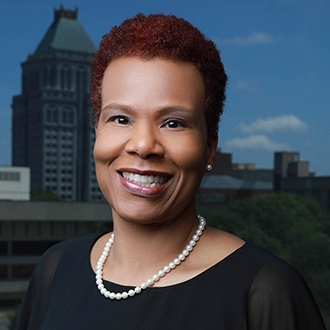
Brigitte Blanton
Director, Greensboro Public Library
Brigitte H. Blanton has been with the Greensboro Public Library for 32 years holding positions of branch manager, senior assistant director, information operations/administration and branch management. Brigitte is very involved in the community, presently serving on several professional and educational boards. She is a member of professional organizations including the American Library Association, Public Library Association, North Carolina Public Library Association, North Carolina Public Library Directors Association and the National Forum of Black Public Administrators. Brigitte is currently a member of ULC's Digital Equity action team, one of six member-led teams spearheading ULC's Going Forward from the Pandemic Initiative.
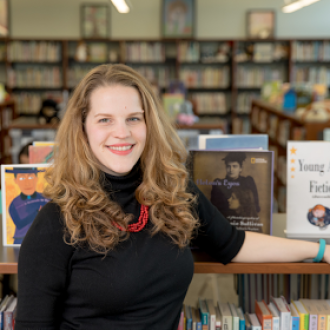
Morgan Ritchie-Baum
Business & Nonprofit Librarian, Greensboro Public Library
Morgan Ritchie-Baum is the business & nonprofit librarian at Greensboro Public Library in Greensboro, N.C. She loves discovering and experimenting with new ideas for outreach in librarianship and enjoys collaborating with librarians and outside organizations near and far. She is an active member and director-at-large of the Business Librarianship in North Carolina section of the North Carolina Library Association.
Related Articles
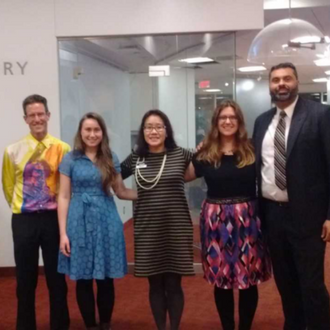
Welcoming and Supporting Entrepreneurial Newcomers
Toronto Public Library
Discover how Toronto Public Library learned the importance of taking a focused approach to supporting local entrepreneurs by participating in the ULC Entrepreneurship Learning Cohort and launching the library's Newcomer Entrepreneur in Residence program.
Learn More
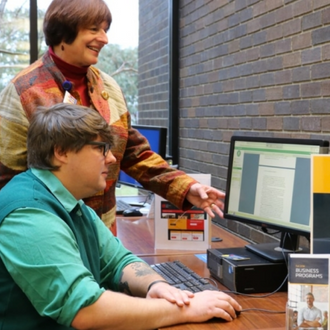
Expanding Our Reach in the Glass City and Beyond
Toledo Lucas County Public Library
Discover how Toledo Lucas County Public Library improved its engagement with the local business community by participating in the ULC Entrepreneurship Learning Cohort.
